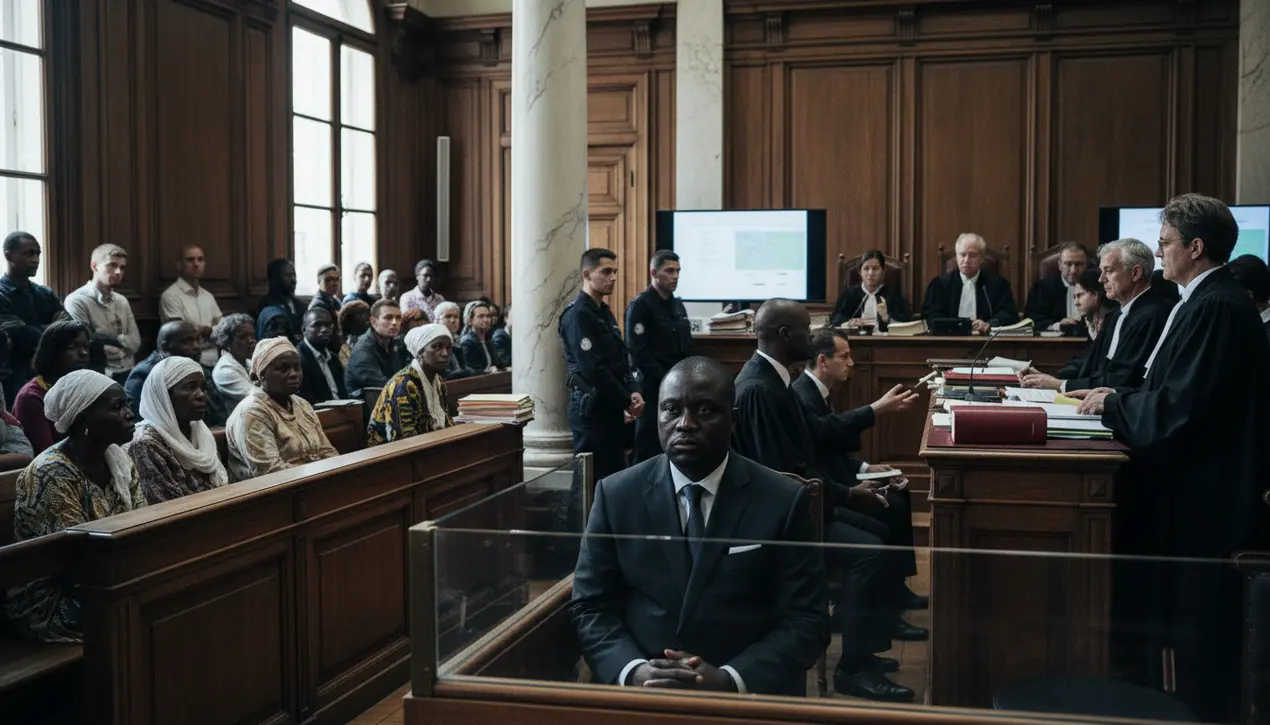
Politicscourts & investigationsInternational Courts
Former Congolese Rebel Leader on Trial in France for Atrocities
RO
Robert Hayes
3 hours ago7 min read
The trial of a former Congolese rebel commander in a Paris courtroom represents a seismic shift in the architecture of international justice, a proceeding made possible only by France's unique application of universal jurisdiction—a legal principle that allows its national courts to prosecute the most severe international crimes, regardless of where they were committed or the nationality of the perpetrators or victims. This legal doctrine, while noble in its intent to deny safe haven to those accused of crimes against humanity, war crimes, and genocide, places France in the complex role of a global magistrate, a position fraught with diplomatic peril and moral responsibility.The specific statute being invoked traces its lineage to a 1990s-era French legal reform, a move that was initially met with both international acclaim and domestic skepticism, creating a judicial mechanism that operates independently of the often-gridlocked International Criminal Court in The Hague. For the Democratic Republic of Congo, a nation scarred by decades of cyclical violence where impunity has been the norm rather than the exception, this trial is a double-edged sword; it offers a glimmer of accountability to victims who have seen countless warlords evade justice, yet it also risks being perceived as a new form of neo-colonial judicial intervention, where a former colonial power passes judgment on African conflicts from a safe and distant European capital.The defendant, whose militia once held sway over mineral-rich territories in the volatile eastern regions of the DRC, now sits in a defendant's box, a stark contrast to the power he once wielded, his case built upon years of painstaking investigation by French investigative judges and evidence gathered by NGOs like TRIAL International. The charges likely detail a litany of horrors—systematic rape as a weapon of war, the conscription of child soldiers, mass killings of civilians—atrocities that echo the darkest chapters of human history and force the court to grapple with the very nature of evil.This trial is not occurring in a vacuum; it follows a similar, precedent-setting case where another Congolese militia leader, Roger Lumbala, was convicted, thereby establishing a judicial track record. The proceedings will be meticulously watched by legal scholars, human rights advocates, and governments worldwide, particularly in capitals like The Hague, Washington, and across Africa, as a test case for the viability and legitimacy of universal jurisdiction.Critics, including some realpolitik-focused diplomats, argue that such trials can complicate foreign relations and impede peace processes, potentially making governments hesitant to cooperate with France on other security matters. Proponents, however, see it as an indispensable tool in a world where geopolitical interests often shield the powerful from accountability, a necessary bulwark against the erosion of international humanitarian law.The outcome will reverberate far beyond the Palais de Justice, potentially influencing similar legal efforts in Germany, Sweden, and Switzerland, which have also pursued universal jurisdiction cases. It raises profound questions about the future of international justice: Can national courts effectively serve as a proxy for a truly global system? Does this model create a patchwork of accountability dependent on the political will of individual states? The testimony of survivors, transported from their villages to the formal setting of a French courtroom, will provide a human face to the legal arguments, their stories serving as a powerful reminder of the real-world consequences of the conflict.As the trial unfolds, it will dissect not only the actions of one man but also the international community's collective failure to halt the bloodshed in the DRC, a conflict fueled by the global demand for precious minerals like coltan and cobalt. The final judgment will thus be more than a verdict; it will be a statement on whether the long arm of the law can truly reach into the heart of darkness, and whether a court in Paris can deliver a measure of justice for crimes committed a continent away.
#featured
#France
#war crimes
#Congo
#trial
#international justice
#human rights
Stay Informed. Act Smarter.
Get weekly highlights, major headlines, and expert insights — then put your knowledge to work in our live prediction markets.
Comments
Loading comments...
© 2025 Outpoll Service LTD. All rights reserved.